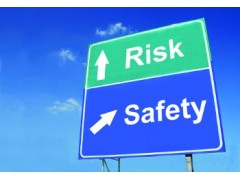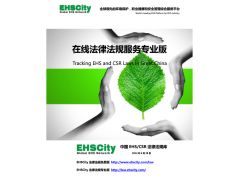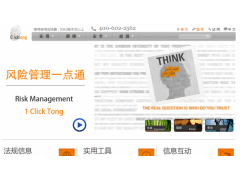Is your chemical plant a model of safety? Safety standards for chemical production facilities, refineries, petroleum and related industries.
Health and safety professionals, workers and managers responsible for operations, facility management, testing and production or R&D and those providing goods or services to these industries should review these standards.
The American National Standards Institute (ANSI) has served in its capacity as administrator and coordinator of the United States private sector voluntary standardization system for more than 90 years. Founded in 1918 by five engineering societies and three government agencies, the Institute remains a private, nonprofit membership organization supported by a diverse constituency of private and public sector organizations.
Throughout its history, ANSI has maintained as its primary goal the enhancement of global competitiveness of U.S. business and the American quality of life by promoting and facilitating voluntary consensus standards and conformity assessment systems and promoting their integrity. The Institute represents the interests of its nearly 1,000 company, organization, government agency, institutional and international members through its office in New York City, and its headquarters in Washington, D.C.
National Standardization
ANSI facilitates the development of American National Standards (ANS) by accrediting the procedures of standards developing organizations (SDOs). These groups work cooperatively to develop voluntary national consensus standards. Accreditation by ANSI signifies that the procedures used by the standards body in connection with the development of American National Standards meet the Institute’s essential requirements for openness, balance, consensus and due process.
ANSI is often asked about the total number of standards (and standards setting bodies) in the United States. It is estimated that in the U.S. today there are hundreds of “traditional” standards developing organizations - with the 20 largest SDOs producing 90% of the standards - and hundreds more “non-traditional” standards development bodies, such as consortia. This means that the level of U.S. participation is quite expansive as the groups themselves are comprised of individual committees made up of experts addressing the technical requirements of standards within their specific area of expertise.
At year-end 2006, about 200 of these standards developers were accredited by ANSI; there were more than 10,000 American National Standards (ANS).
In order to maintain ANSI accreditation, standards developers are required to consistently adhere to a set of requirements or procedures known as the “ANSI Essential Requirements," that govern the consensus development process. Due process is the key to ensuring that ANSs are developed in an environment that is equitable, accessible and responsive to the requirements of various stakeholders. The open and fair ANS process ensures that all interested and affected parties have an opportunity to participate in a standard’s development. It also serves and protects the public interest since standards developers accredited by ANSI must meet the Institute’s requirements for openness, balance, consensus and other due process safeguards.
That is why American National Standards are usually referred to as “open” standards. In this sense, “open” refers to a process used by a recognized body for developing and approving a standard. The Institute’s definition of openness has many elements, but basically refers to a collaborative, balanced and consensus-based approval process. The content of these standards may relate to products, processes, services, systems or personnel.
In its role as the only accreditor of U.S. voluntary consensus standards developing organizations, ANSI helps to ensure the integrity of the standards developers that use our ANSI Essential Requirements: Due process requirements for American National Standards. A separate process, based on the same principles, determines whether standards meet the necessary criteria to be approved as American National Standards. Our process for approval of these standards (currently numbering approximately 10,000) is intended to verify that the principles of openness and due process have been followed and that a consensus of all interested stakeholder groups has been reached.
The hallmarks of this process include:
- Consensus must be reached by representatives from materially affected and interested parties
- Standards are required to undergo public reviews when any member of the public may submit comments
- Comments from the consensus body and public review commenters must be responded to in good faith
- An appeals process is required
ANSI’s use of the terms “open” and “openness” to describe standards is meant to characterize documents that have undergone this kind of consensus-based, transparent process. All ANSI-accredited standards developers follow the Essential Requirements which embrace globally-accepted principles of standardization implemented by well-recognized, international standards bodies such as the International Telecommunication Union (ITU), International Organization for Standardization (ISO), and International Electrotechnical Commission (IEC).
The terms and conditions used in the development of “open standards” should balance the interests of those who will implement the standard with the interests and voluntary cooperation of those who own intellectual property rights that are essential to the standard. Such terms and conditions should readily promote, and not unreasonably burden, accessibility to the standard for the communities of interested implementers. To achieve such balance, the payment of reasonable license fees and/or other reasonable and nondiscriminatory license terms may be required by the intellectual property rights holders. This balance of licensing rights (rather than waiver thereof) is consistent with an open standard. The word “open” does not imply “free” from monetary compensation or other reasonable and nondiscriminatory license terms. Further, an open standard may involve the payment of a fee to obtain a copy of the standard. Such fees are sometimes used to offset the costs associated with managing open standards development process.
The ANSI process serves all standardization efforts in the United States by providing and promoting a process that withstands scrutiny, while protecting the rights and interests of every participant. In essence, ANSI standards quicken the market acceptance of products while making clear how to improve the safety of those products for the protection of consumers.
International StandardizationANSI promotes the use of U.S. standards internationally, advocates U.S. policy and technical positions in international and regional standards organizations, and encourages the adoption of international standards as national standards where they meet the needs of the user community.
The Institute is the sole U.S. representative and dues-paying member of the two major non-treaty international standards organizations, the International Organization for Standardization (ISO), and, via the U.S. National Committee (USNC), the International Electrotechnical Commission (IEC). As a founding member of the ISO, ANSI plays a strong leadership role in its governing body while U.S. participation, via the USNC, is equally strong in the IEC.
Through ANSI, the U.S. has immediate access to the ISO and IEC standards development processes. ANSI participates in almost the entire technical program of both the ISO and the IEC, and administers many key committees and subgroups. Part of its responsibilities as the U.S. member body to the ISO include accrediting U.S. Technical Advisory Groups (U.S. TAGs), whose primary purpose is to develop and transmit, via ANSI, U.S. positions on activities and ballots of the international Technical Committee. U.S. positions for the IEC are endorsed and closely monitored by the USNC Technical Management Committee (TMC).
In many instances, U.S. standards are taken forward to ISO and IEC, through ANSI or the USNC, where they are adopted in whole or in part as international standards. For this reason, ANSI plays an important part in creating international standards that support the worldwide sale of products, which prevent regions from using local standards to favor local industries. Since volunteers from industry and government, not ANSI staff, carry out the work of the international technical committees, the success of these efforts often is dependent upon the willingness of U.S. industry and government to commit the resources required to ensure strong U.S. technical participation in the international standards process.
Conformity Assessment
Conformity Assessment, the term used to describe steps taken by both manufacturers and independent third parties to determine fulfillment of standards requirements, also remains a high priority for the Institute. ANSI’s program for accrediting third-party product certification have experienced significant growth in recent years, and the Institute continues its efforts to obtain worldwide acceptance of accredited certifications performed in the U.S.
One of the best indicators of the strength of the U.S. system is the government’s extensive reliance on, and use of, private sector voluntary standards. Pursuant to OMB Circular A119, federal government agencies are required to use voluntary standards for regulatory and procurement purposes when appropriate. State and local governments and agencies have formally adopted thousands of voluntary standards produced by ANSI, and the process appears to be accelerating.
In summary, ANSI continues to be fully involved in its support of the goals of U.S. and global standardization and remains committed to enhancing of the quality of life for all global citizens.







